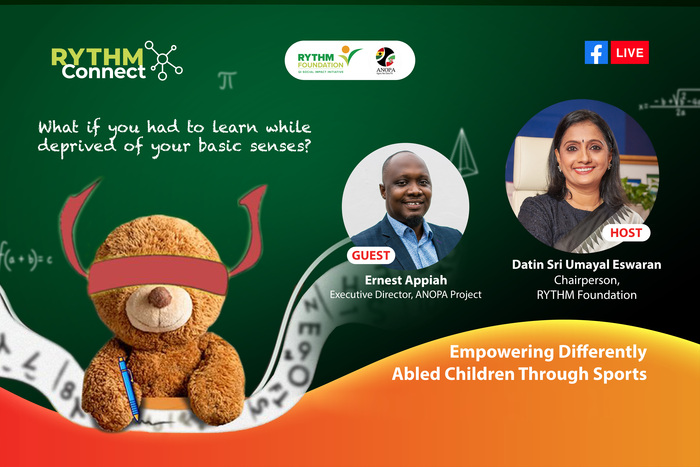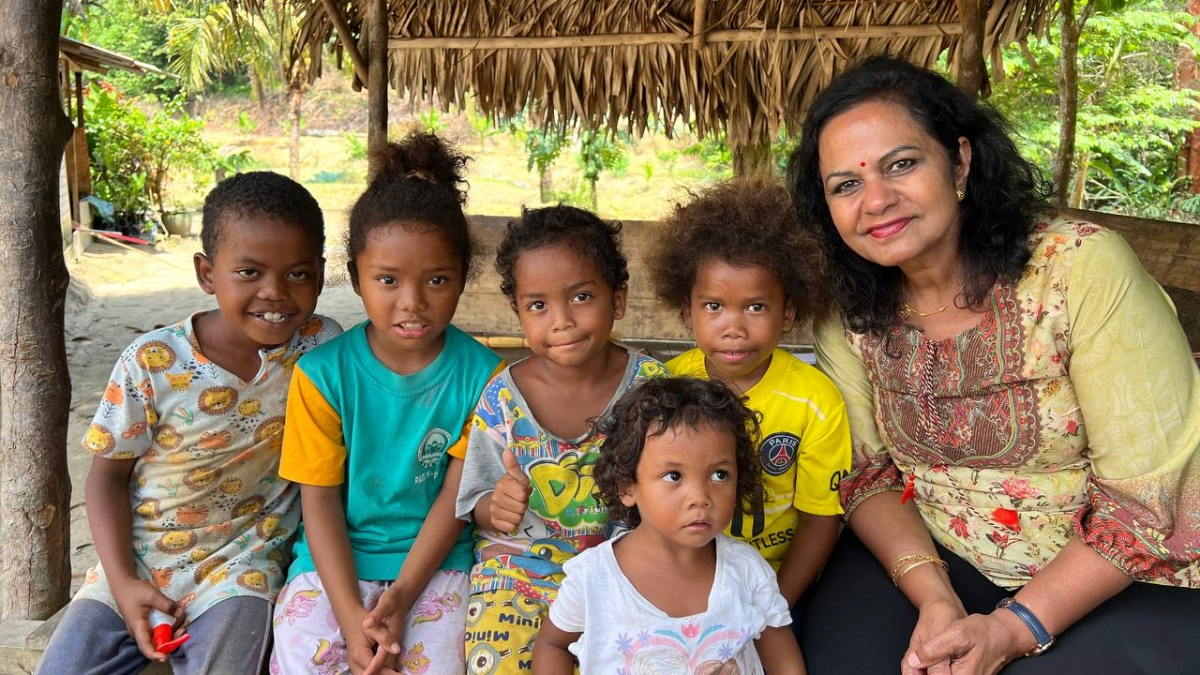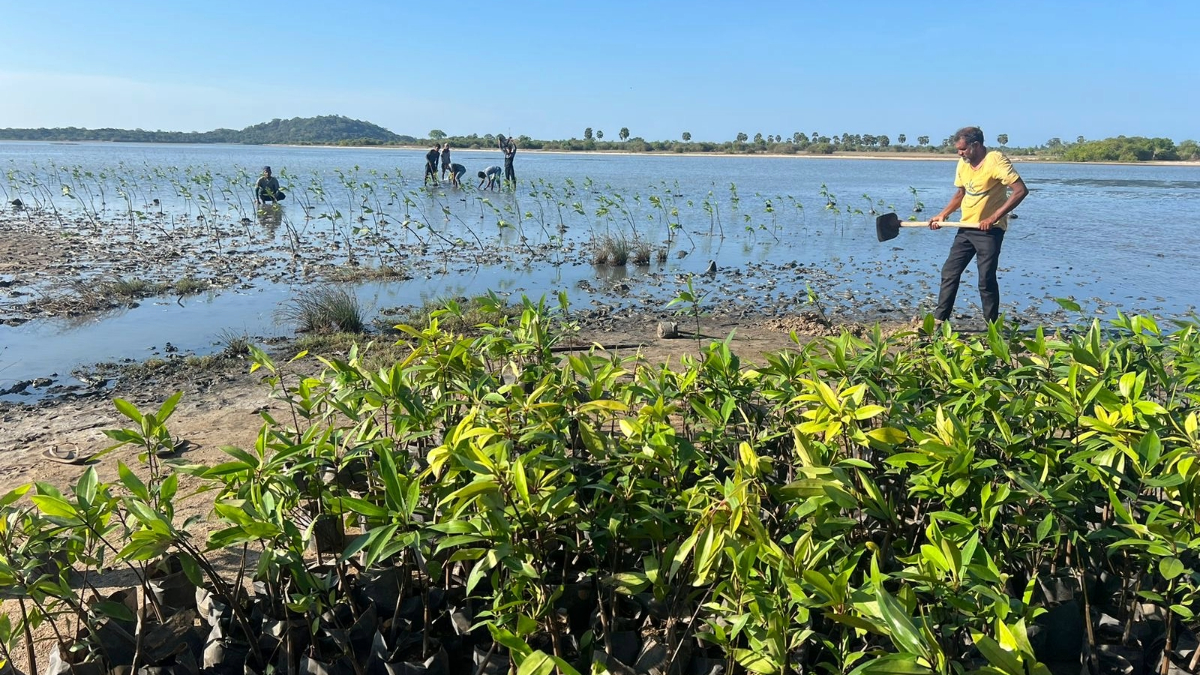Differently-abled children face significant barriers throughout their lives, with one pervasive problem: lack of inclusion in education and society.
With an estimated 240 million children with disabilities worldwide (UNICEF), 49% have likely never attended school. There is even lesser participation in games, with 22% unlikely to have positive experiences in sports.
Their general exclusion is often an effect of their inconspicuousness in society, as the latest episode of RYTHM Connect spelt out. The Facebook Live event is RYTHM Foundation’s conversation series on topics that matter with partners, experts, and social activists.
Themed “Empowering Differently-abled Children Through Sports,” RYTHM Chairperson and host Datin Sri Umayal Eswaran facilitated the crucial discussion with Ernest Appiah, executive director of ANOPA Project, the Foundation’s partner in Ghana.
The Cape Coast-based NGO employs sports like swimming, football, and basketball for children’s individual development, gender equity, and inclusion.
Datin Sri Umayal and Ernest’s conversation centred on how inclusion in sports can help differently-abled children lead better quality lives and empower them as changemakers.
“Exclusion is often the consequence of invisibility, which is why we must advocate more loudly and acknowledge the potential of the differently-abled,” Datin Sri Umayal said.
“However, in some parts of the world, children with disabilities are hidden from society. They are prevented from learning and contributing to society as families struggle to raise them.”
The talk also drew on the social stigma faced by Ghana’s differently-abled young. ANOPA works to ensure they participate in inclusive activities that unearth their talents while receiving an education.
“ANOPA is an acronym for the Ghanaian proverb Agoro Ne Obra Pa, which means ‘play for a better life.’ Sport is not an end in itself. For us, it is to propagate inclusiveness and confidence, especially among marginalised and differently-abled children,” Ernest said.
Also read: Simple Ways You Can Support And Empower Children With Disabilities
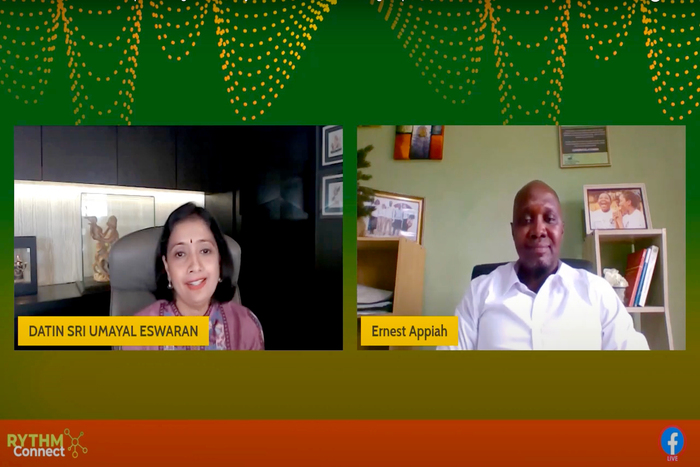
children through sports in the latest episode of RYTHM Connect.
Social stigmatisation from birth
According to Ernest, many children with disabilities in Ghana face negative societal attitudes and barriers, often from birth.
“Many parents abandon their newborns when they discover their babies have blindness or hearing loss. As a result, these children end up with people incapable of or lacking empathy to care for them. Over time, the stigmatisation spreads through communities and the population.”
He is a firm advocate of inclusive education. “Regular schools broadly exclude the differently-abled because they cannot interact with typical kids. However, specialised institutions also fail to encourage community and society integration because these places shelter the differently-abled from the real world.”
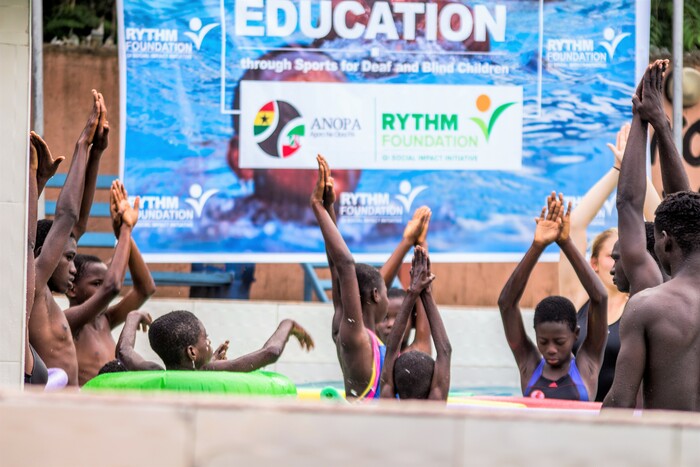
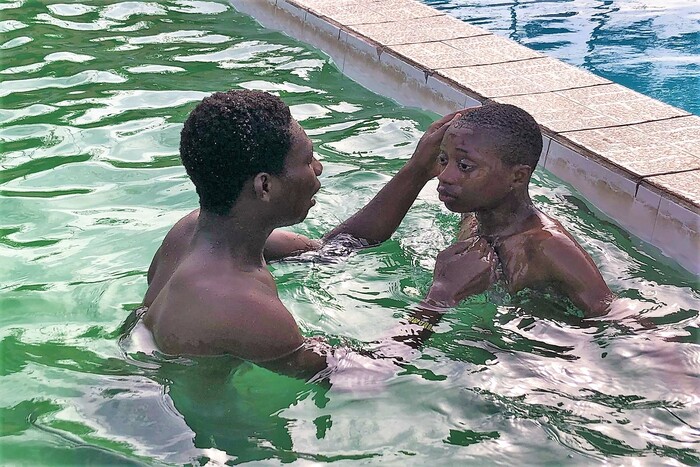
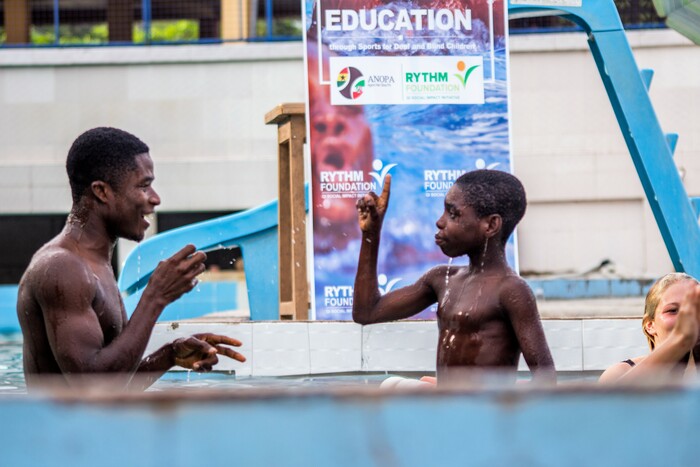
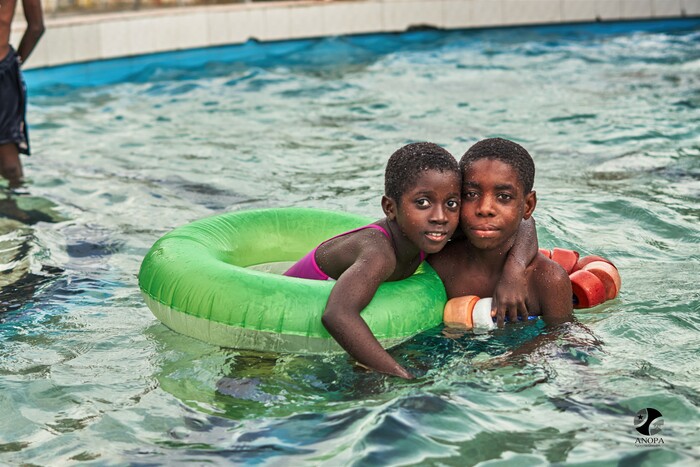
differently- and typically-abled youngsters.
ANOPA’s initiatives with RYTHM are helping negate the inequities. Its swimming programme, for example, encourages integration between differently- and typically-abled youngsters.
“The young see beyond each other’s capabilities and have no problem interacting with and learning from one another. This inclusivity helps spurn discriminatory attitudes. It is inspiring to see these kids become friends,” Ernest said.
A recent achievement of the aquatics programme has made Ghana proud. Fourteen youths have qualified for Argentina’s 6th World Deaf Swimming Championships next year – a first for the NGO and the country.
“Allow the differently-abled to play sports. That is fundamental to their integration into society. Sports is a beautiful way to embrace and empower the differently-abled,” Ernest said.
The price of exclusion
The discussion also homed in on the global perspective of disability as a public health and human rights issue and a development priority.
Citing hard-hitting data, Datin Sri Umayal said, “Over 5% of the world’s population – about 430 million people – require rehabilitation to address their hearing loss. By 2050, over 700 million people – one in every 10 – will have hearing loss.
“These may be mere numbers for many, but I cannot even comprehend their magnitude. If we do not support and empower the differently-abled through education, sports, and soft skills, how can we expect them to contribute to society?”
Ernest echoed this assertion. “If you have or know a differently-abled child, do not leave them isolated from society. Community awareness is essential. Allow kids to experience the integration programmes by your government, NGOs, and associations.
“Do not teach your child about the differently-abled. Instead, introduce them to one another through sports. They will not care about any disability because the common denominator is sports. Learning by example is most effective through sports and social interaction.”
There are substantial costs to individuals and society associated with leaving the differently-abled out of economies. For example, data suggests that nations forego up to 7% of their Gross Domestic Product (GDP) due to this exclusion.
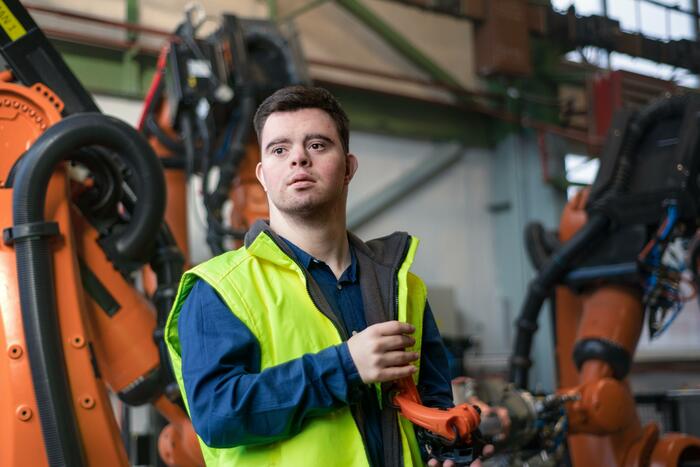
leaving the differently-abled out of economies.
“People fail to understand that by not empowering the differently-abled, you are not doing any good for the growth of your country. So, why not systematically invest in empowering and bringing kids out of poverty? They will contribute to economic growth. But that foresight is unfortunately lacking,” Datin Sri Umayal contended.
“The differently-abled are only going to grow in numbers. Not embracing the realities and helping is not an option. Educating parents and society about the potential of the differently-abled is undoubtedly a hard path, but it is a road that we must travel.”
The speakers agreed that giving special needs children a start – in a sport, education, or soft skills – can help them be active contributors to society.
“Given the right environment and opportunities, we can enable the differently-abled to effect social change.
“Everybody is prone to becoming deaf or blind through accident, old age, or empathy. Therefore, we must show compassion and care toward the differently-abled because they are humans, too,” Ernest added.
Watch the complete RYTHM Connect discussion on “Empowering Differently-abled Children Through Sports” in the video below:

